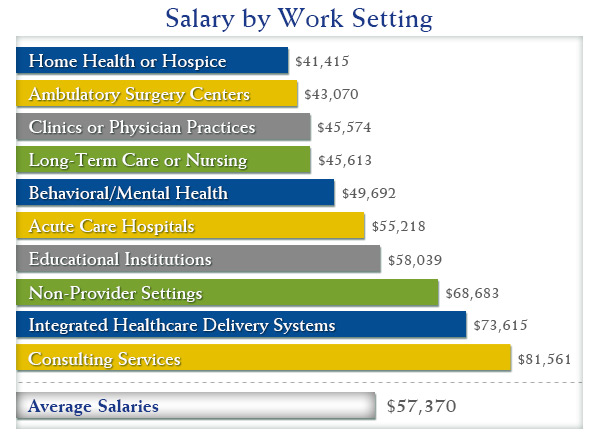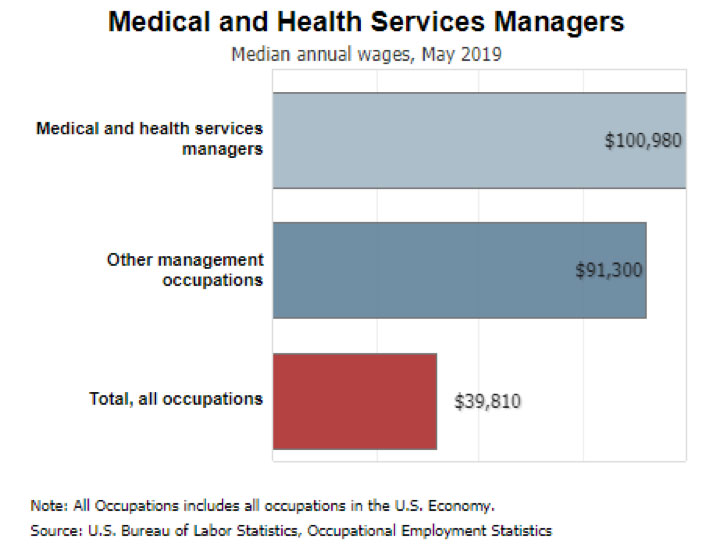Medical Informatics Salary: What Can You Earn?

Are you considering a career in medical informatics and wondering about the earning potential? Medical informatics professionals play a crucial role in bridging the gap between healthcare and technology, ensuring efficient data management and improved patient outcomes. With the increasing demand for healthcare IT solutions, understanding the medical informatics salary landscape is essential for aspiring professionals. This blog post will explore the factors influencing salaries, average earnings, and how to maximize your income in this field.
What is Medical Informatics?

Medical informatics, also known as health informatics, involves the use of technology to manage and analyze healthcare data. Professionals in this field work on electronic health records (EHRs), data analytics, telemedicine, and more. The role requires a blend of technical skills and healthcare knowledge, making it a unique and rewarding career path.
Factors Influencing Medical Informatics Salary

Several factors determine how much you can earn in medical informatics. These include:
1. Education and Certifications
Higher degrees, such as a master’s or Ph.D. in health informatics, often lead to higher salaries. Certifications like the Certified Health Informatics Systems Professional (CHISP) or Registered Health Information Administrator (RHIA) can also boost earning potential.
2. Experience Level
Entry-level positions typically offer lower salaries, but with experience, earnings increase significantly. Senior roles like Chief Medical Information Officer (CMIO) command top-tier salaries.
3. Geographic Location
Salaries vary by region. Urban areas with higher costs of living, such as New York or San Francisco, often offer higher pay compared to rural areas.
4. Industry and Employer Type
Working in hospitals, private companies, or government agencies can impact earnings. Private sector jobs, especially in tech companies, often pay more than public sector roles.
| Factor | Impact on Salary |
|---|---|
| Education | Higher degrees = Higher salary |
| Experience | More experience = Higher salary |
| Location | Urban areas = Higher salary |
| Employer Type | Private sector = Higher salary |

Average Medical Informatics Salary

According to recent data, the average medical informatics salary in the United States ranges from 70,000 to 120,000 per year. However, this can vary widely based on the factors mentioned above.
Entry-Level Salaries
Entry-level positions, such as Health Informatics Analyst or Clinical Informatics Specialist, typically start at around 60,000 to 80,000 annually.
Mid-Level Salaries
With 3-5 years of experience, professionals can earn between 80,000 and 100,000 in roles like Health Data Manager or Informatics Nurse.
Senior-Level Salaries
Senior roles, including Chief Medical Information Officer (CMIO) or Director of Health Informatics, can command salaries exceeding $120,000, often reaching $150,000 or more.
📌 Note: Salaries are subject to change based on market trends and regional variations.
How to Maximize Your Medical Informatics Salary

To increase your earning potential, consider the following strategies:
- Pursue Advanced Education: A master’s or doctoral degree can open doors to higher-paying roles.
- Gain Specialized Certifications: Certifications like CHISP or RHIA demonstrate expertise and justify higher salaries.
- Build Experience: Take on diverse projects to enhance your skill set and negotiate better pay.
- Network Strategically: Attend industry conferences and join professional organizations to connect with potential employers.
Key Takeaways

- Medical informatics salary varies based on education, experience, location, and employer type.
- Average salaries range from 70,000 to 120,000, with senior roles earning significantly more.
- Investing in education, certifications, and experience can maximize your earning potential.
What is the starting salary for a medical informatics professional?
+Entry-level salaries typically range from $60,000 to $80,000 annually, depending on the role and location.
How does experience impact medical informatics salary?
+With 3-5 years of experience, salaries can increase to $80,000-$100,000, while senior roles often exceed $120,000.
Are certifications necessary for higher salaries in medical informatics?
+While not mandatory, certifications like CHISP or RHIA can significantly boost earning potential by demonstrating specialized skills.
In summary, a career in medical informatics offers competitive salaries and ample opportunities for growth. By focusing on education, experience, and strategic career moves, you can achieve a rewarding and financially fulfilling career in this dynamic field.
Related Keywords: medical informatics jobs, health informatics career, medical informatics certifications, healthcare IT salaries.



